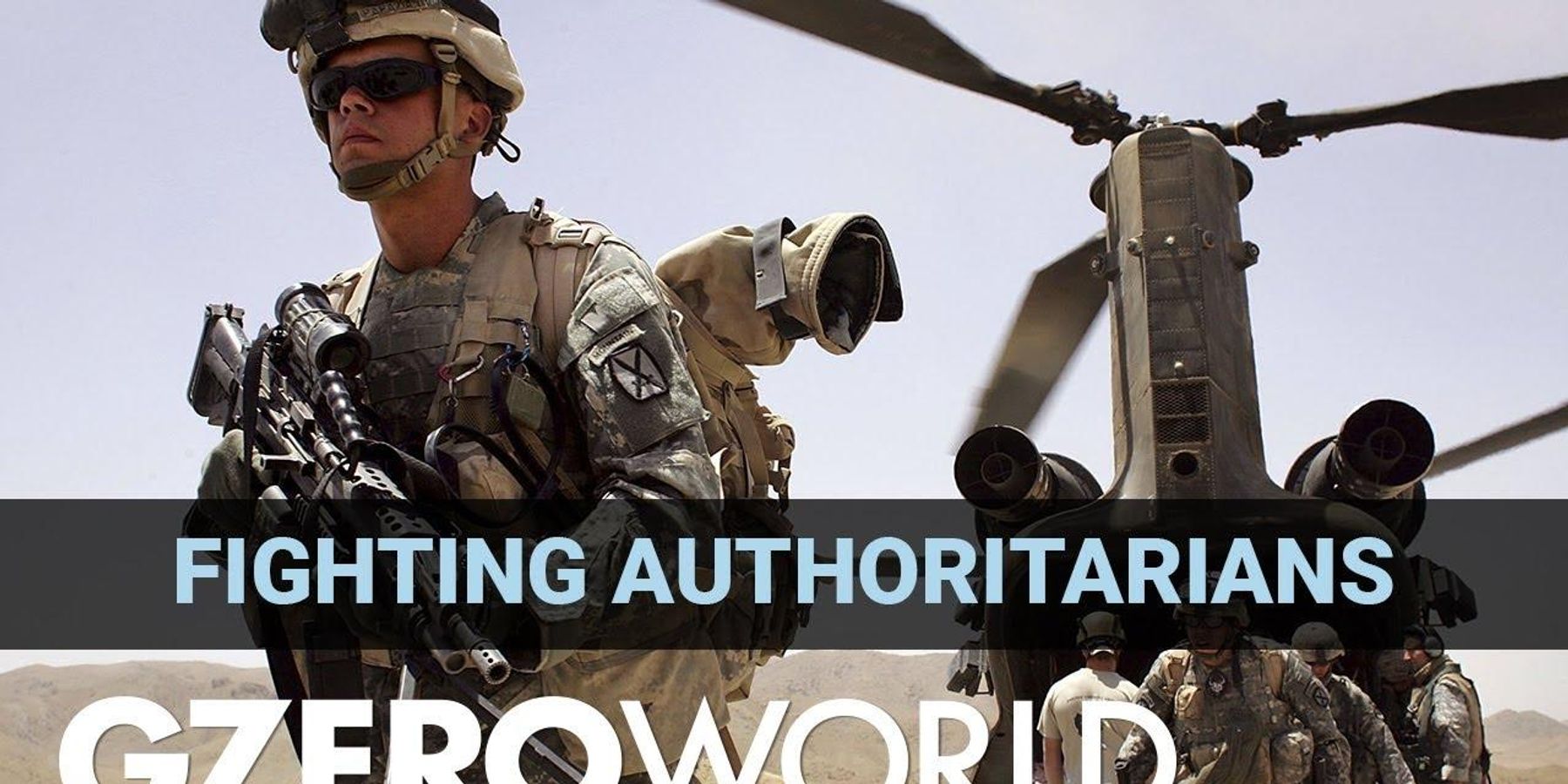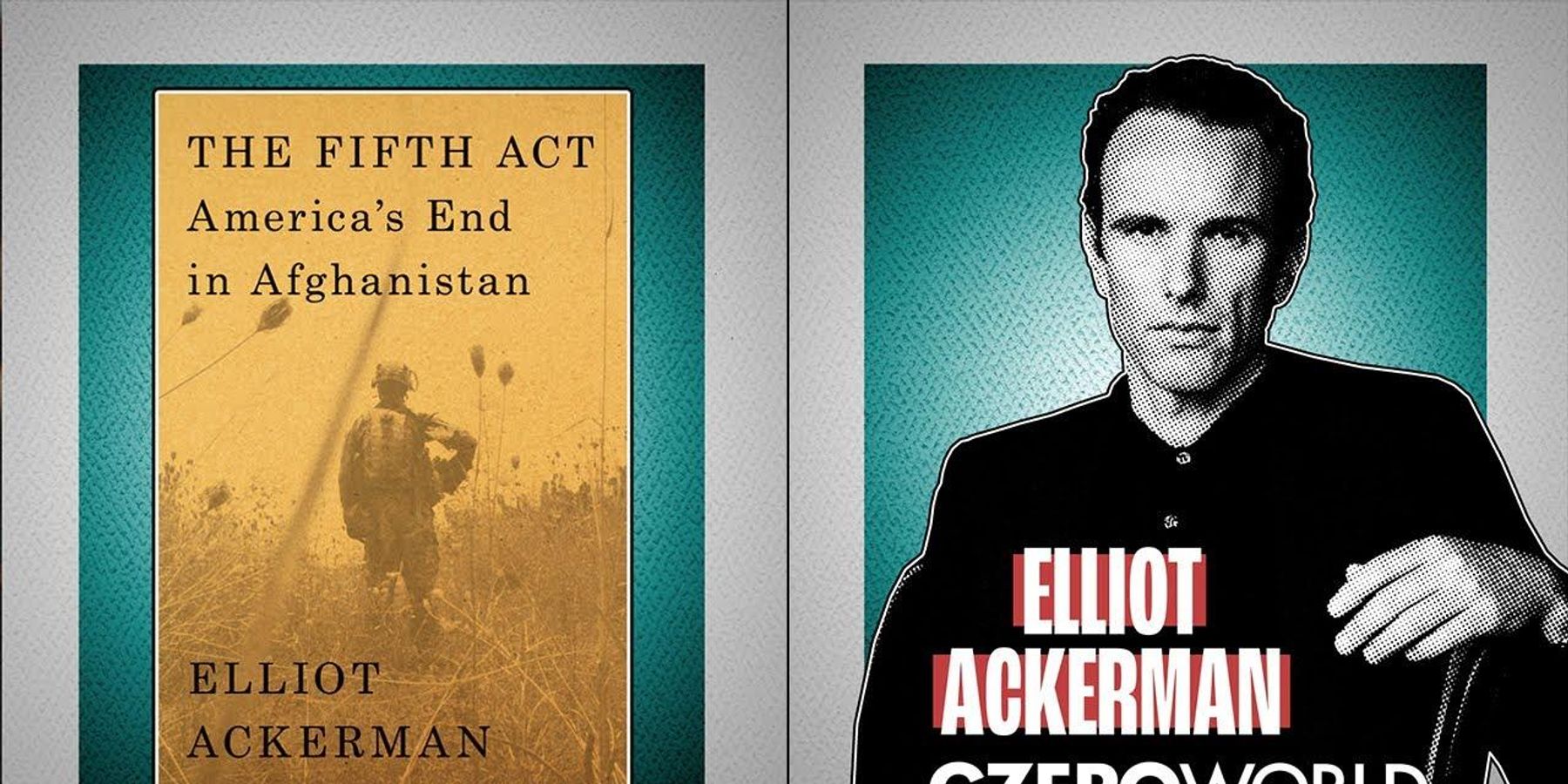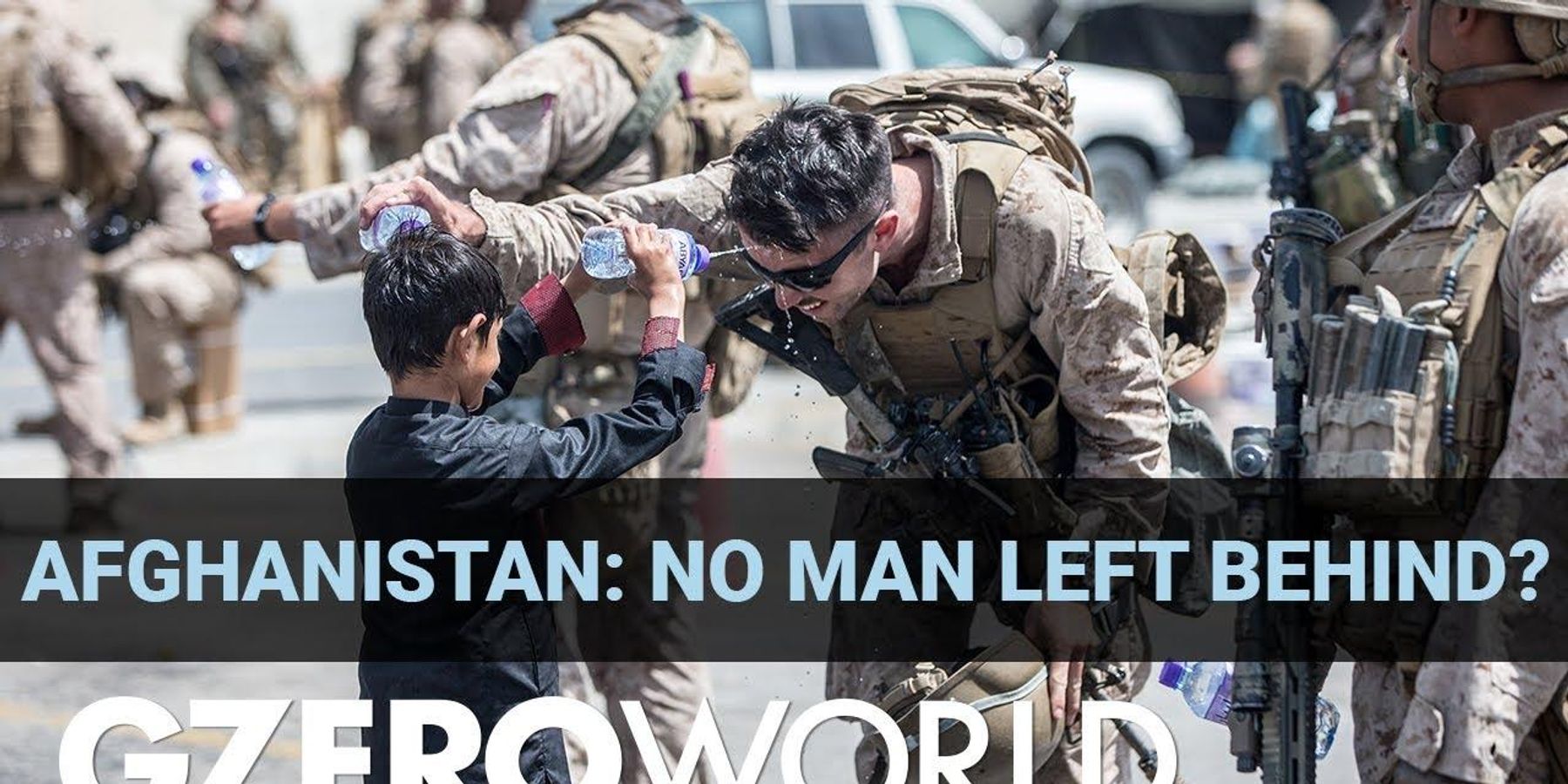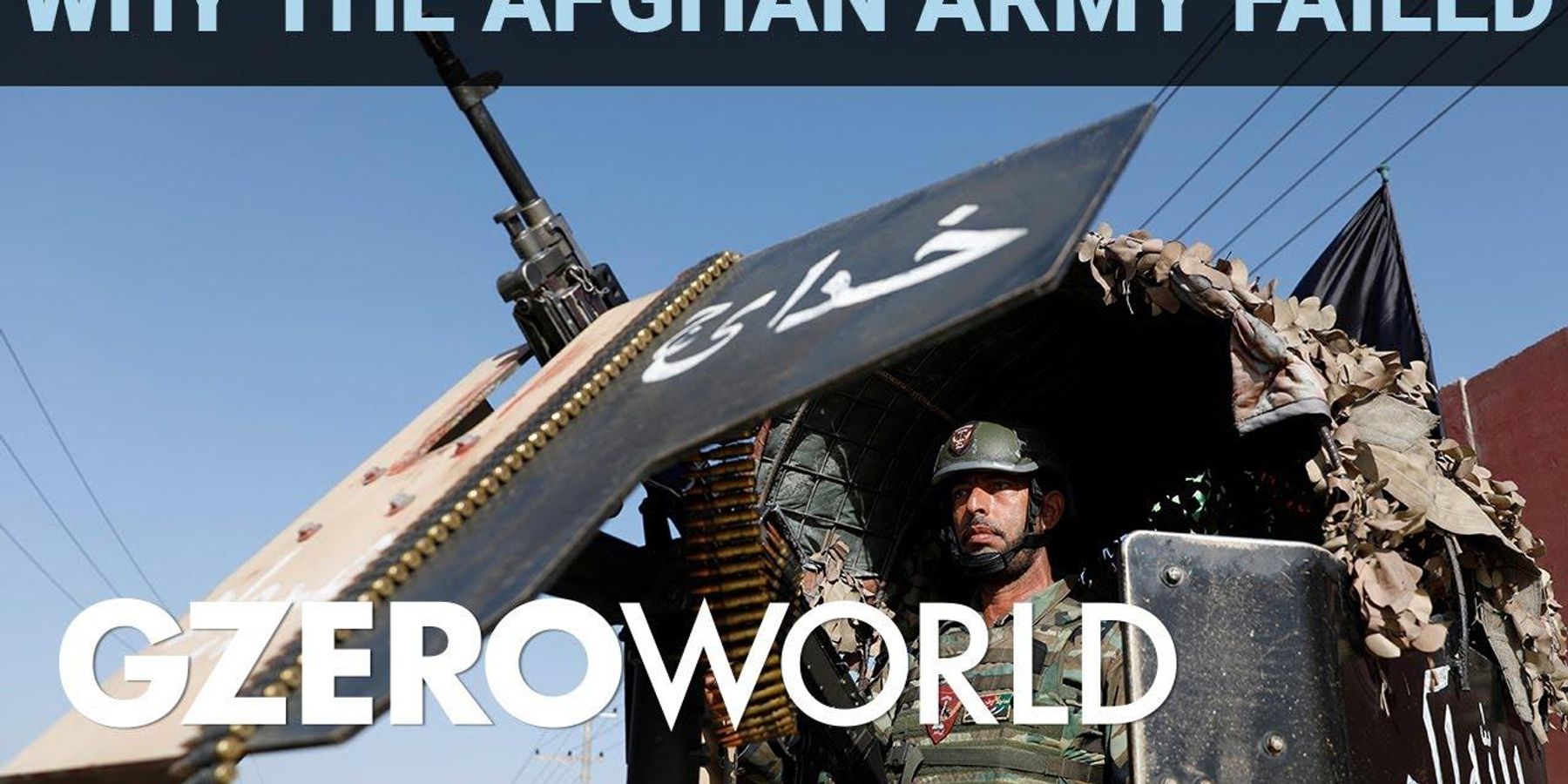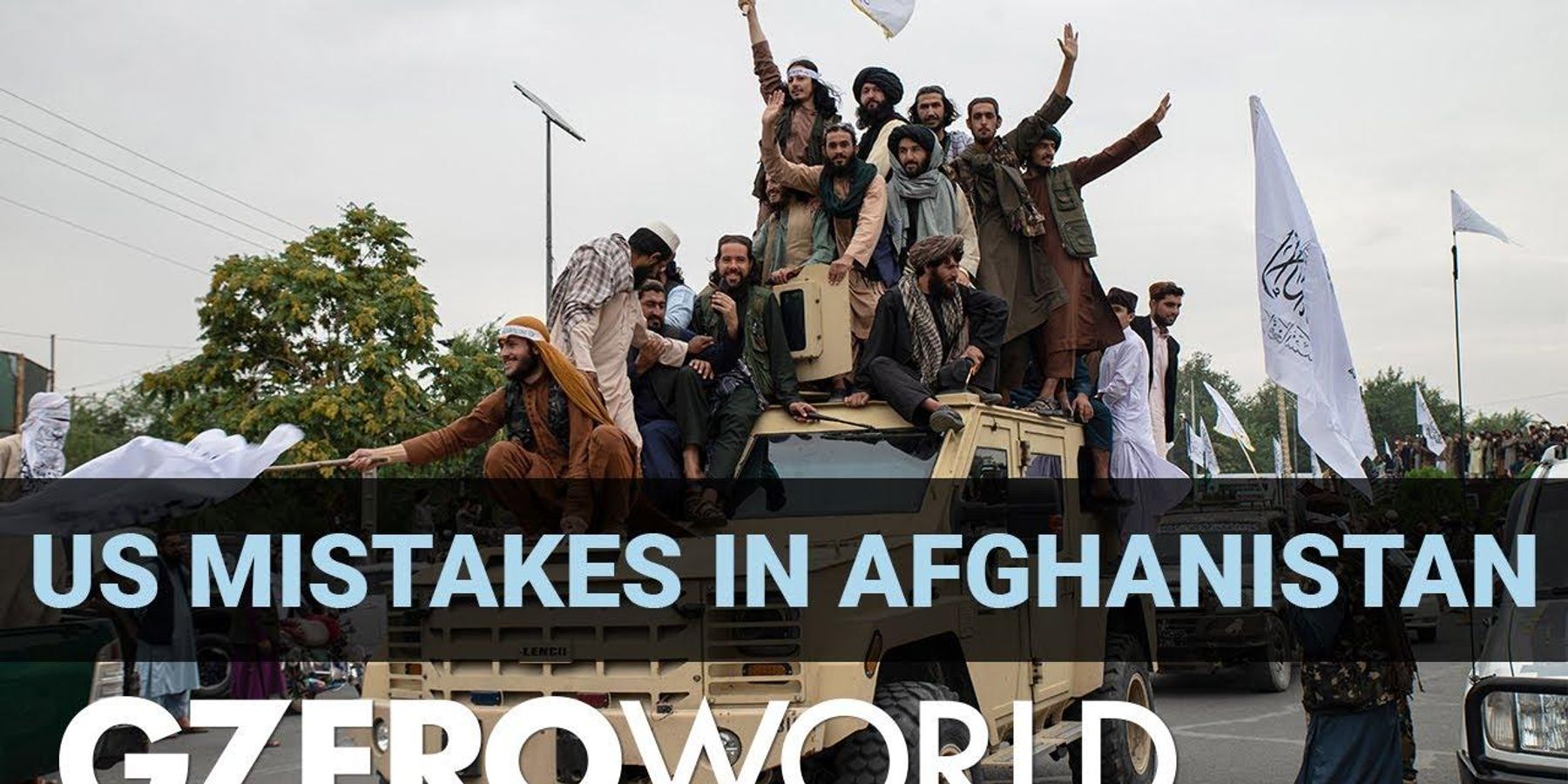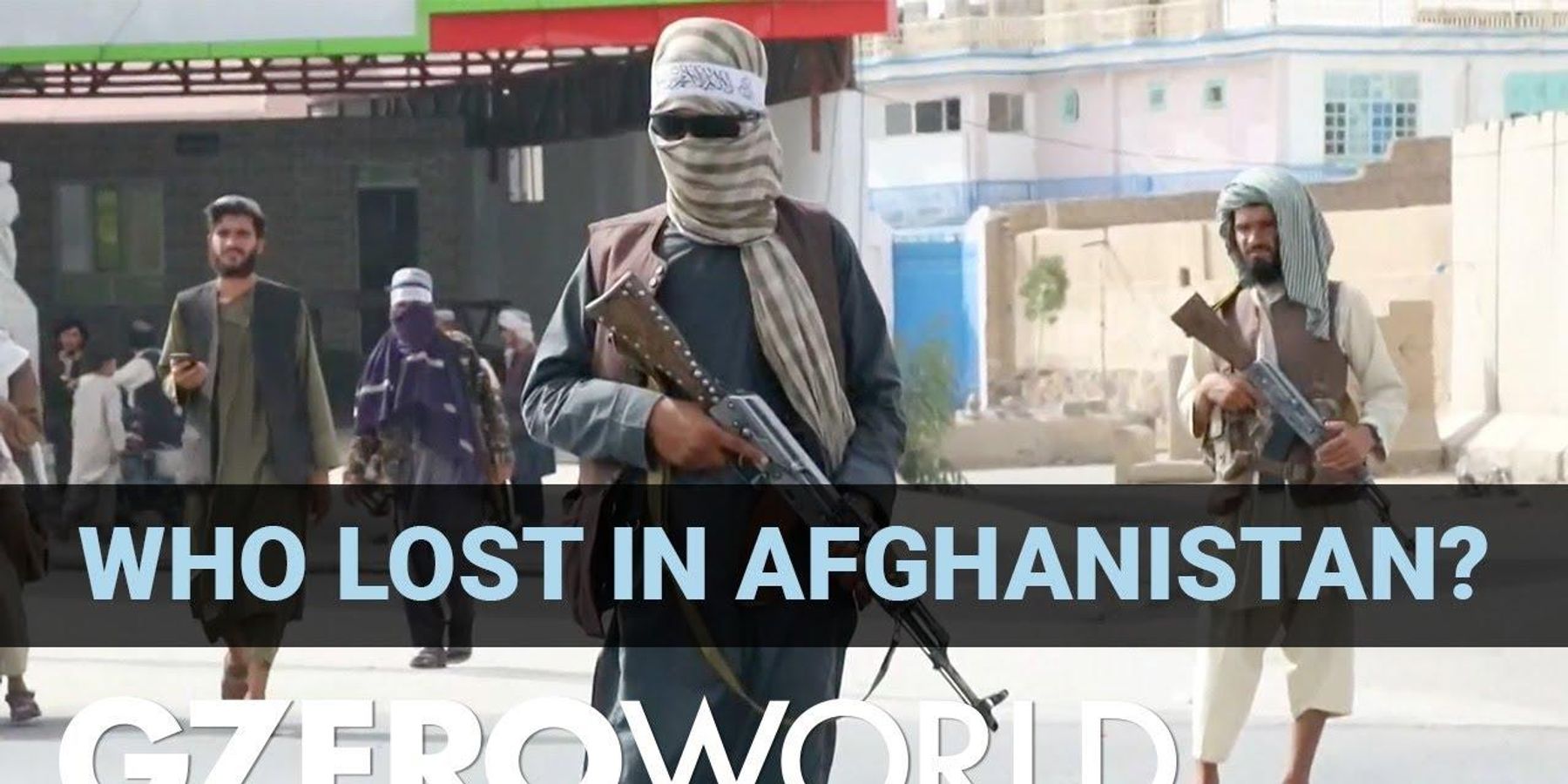Trending Now
We have updated our Privacy Policy and Terms of Use for Eurasia Group and its affiliates, including GZERO Media, to clarify the types of data we collect, how we collect it, how we use data and with whom we share data. By using our website you consent to our Terms and Conditions and Privacy Policy, including the transfer of your personal data to the United States from your country of residence, and our use of cookies described in our Cookie Policy.
{{ subpage.title }}
Authoritarian alliances & the future of the free world
Elliot Ackerman's new book about the US exit from Afghanistan is called The Fifth Act.
But what comes next for America in the region?
On GZERO World, the former US marine and CIA officer tells Ian Bremmer that the next big challenge will be how free nations of the world respond to the rise of authoritarian regimes.
Watch the GZERO World episode: The fallout from US Afghanistan withdrawal: a Marine's perspective
- The politics of resentment & how authoritarian strongmen gain ... ›
- Is a more peaceful Middle East possible in 2022? - GZERO Media ›
- The US no longer wants to be the world's policeman - GZERO Media ›
- How the lessons of Vietnam and Afghanistan can help the US face ... ›
- Populism vs. moderate politics - GZERO Media ›
A US military vet reckons with America's failures in Afghanistan
On Aug. 15, 2021, the Taliban swept back to power in Afghanistan, after the US departed following two decades of war. Ian Bremmer speaks to former Marine and author Elliot Ackerman on GZERO World. According to Ackerman, when it comes to the Russian invasion of Ukraine, the US had a degree of objectivity it had lost after 20 years in Afghanistan. The war, he explained, had come to define our military thinking and intelligence capability because the US was involved there for such a long time.
The US could have done a better job getting out of Afghanistan, according to Ackerman. Requests for an evacuation plan fell on deaf ears in the Pentagon and the White House, especially when it came to securing visas for Afghans who had helped the US military effort.
For Ackerman, leaving no man behind was part of a code of honor when he served as a Marine in the United States military. But that principle was not followed when American troops departed Afghanistan a year ago. Troops, he said, were expected to turn their backs on allies they had worked closely with for 20 years. Ackerman also shares his thoughts on whether an all-volunteer military is what America needs amid deeply dysfunctional domestic politics.
This interview was featured in a GZERO World episode: The fallout from US Afghanistan withdrawal: a Marine's perspective
- The fallout from US Afghanistan withdrawal: a Marine's perspective ... ›
- NATO's darkest chapter: Afghanistan withdrawal (in contrast to unity ... ›
- US Afghanistan withdrawal: a “digital Dunkirk” - GZERO Media ›
- Afghanistan: Four key failures - GZERO Media ›
- Geopolitical fallout over US exit from Afghanistan less than feared ... ›
The volunteer US military & America's shame post-Afghanistan
For Elliot Ackerman, leaving no man behind was part of his code of honor when he was first a US marine and later a CIA officer. But the US military principle was not followed when American troops departed Afghanistan a year ago.
"There was no process to get our allies out," he tells Ian Bremmer on GZERO World.
Ackerman laments how US forces were forced to turn their back on Afghans they'd cultivated personal relationships with for 20 years — when they most needed help.
He also shares his thoughts on whether an all-volunteer military is what America needs amid deeply dysfunctional domestic politics.
Watch the GZERO World episode: The fallout from US Afghanistan withdrawal: a Marine's perspective
US Afghanistan withdrawal: a “digital Dunkirk”
Could the US have done a better job at getting out of Afghanistan?
Certainly, says former US marine and CIA officer Elliot Ackerman, who recalls how calls for an evacuation plan fell on deaf ears in the Pentagon and the White House. Expediting the Special Immigrant Visa (SIV) program for Afghan allies could have been handled better as well.
The problem, he tells Ian Bremmer on GZERO World, is that America thought it'd have a bit of time before the Taliban took over. That was the wrong call.
And now it's much harder to get Afghans out with no presence or networks inside the country.
Watch the GZERO World episode: The fallout from US Afghanistan withdrawal: a Marine's perspective
- Afghanistan: Four key failures - GZERO Media ›
- How the lessons of Vietnam and Afghanistan can help the US face ... ›
- Taliban, Afghan people face economic collapse, says former central ... ›
- Don't blame Afghan army for Taliban takeover: Pashtana Durrani ... ›
- The Graphic Truth: Who controls Afghanistan? - GZERO Media ›
- A US military vet reckons with America's failures in Afghanistan - GZERO Media ›
NATO's darkest chapter: Afghanistan withdrawal (in contrast to unity supporting Ukraine)
The intelligence may have been there - but the ability to draw conclusions unbiased by what Americans needed to believe was not, says Elliot Ackerman, a former US marine who served four tours in Afghanistan and has just come out with a book on the American pullout from Afghanistan called "The Fifth Act."
America's chaotic withdrawal a year ago stands in stark contrast to the highly coordinated US and NATO response to Russia's war. On GZERO World, Ackerman tells Ian Bremmer that when it comes to the Russian invasion of Ukraine, the US had a degree of objectivity it had lost after 20 years in Afghanistan. The war, he explained, had come to define our military thinking and intelligence capability because the US was involved there for such a long time.
A year ago, Ackerman says that US intelligence hoped that the Afghan military would be able to defend the country from the Taliban for a "decent interval" of time, perhaps months or even years before collapse. But things didn't go to plan - and the US did not have a contingency plan.
Watch the GZERO World episode: The fallout from US Afghanistan withdrawal: a Marine's perspective
- Podcast: How the US underestimated the Taliban - and who's ... ›
- The Graphic Truth: Was the US war in Afghanistan worth it ... ›
- The US couldn't have won in Afghanistan - but Biden's mistakes lost ... ›
- How the lessons of Vietnam and Afghanistan can help the US face ... ›
- Afghanistan, 2021: Afghan & US military perspectives as the last ... ›
- Putin miscalculated on Ukraine, misled by post-Cold War worldview ... ›
- Afghanistan: Four key failures - GZERO Media ›
- Biden's rocky start on foreign policy - GZERO Media ›
- A US military vet reckons with America's failures in Afghanistan - GZERO Media ›
The fallout from US Afghanistan withdrawal: a Marine's perspective
Almost one year ago, US forces departed Afghanistan after two decades of war. Their enemy was the Taliban, who didn't wait for all American soldiers to leave before taking over the country.
One year later, Afghanistan is in shambles. The country's economy has tanked, food shortages abound and women and girls face new restrictions on their freedoms. Still, most Americans believe President Joe Biden made the right call by ending this "forever war."
On GZERO World, Ian Bremmer speaks to former US marine and CIA officer Elliot Ackerman, whose new book "The Fifth Act," details the chaotic American withdrawal from Afghanistan. Ackerman believes the US military could have done a much better job at leaving the country, not to mention leaving so many Afghan allies behind.
Then, GZERO World speaks to Fawzia Koofi, who served as a member of Afghan Parliament from 2005 until 2021, about the grim new reality for women and girls in her country. A country she had to flee after the Taliban takeover.
- Can Biden recover from his Afghanistan debacle? - GZERO Media ›
- The Graphic Truth: Who controls Afghanistan? - GZERO Media ›
- Calamitous withdrawal from Afghanistan was a crisis of Biden's own ... ›
- Afghanistan: Four key failures - GZERO Media ›
- A US military vet reckons with America's failures in Afghanistan - GZERO Media ›
Podcast: How the US underestimated the Taliban - and who's paying for it one year later
Listen: The anniversary of the end of America’s war in Afghanistan is a reminder of what many see as a staggering US defeat. It was also a victory for a long-time US adversary, the Taliban, who remain in control as the country faces a humanitarian crisis and a crumbling economy. Their brutal rule has also led to worsening conditions for women and girls in the country. Ian Bremmer speaks to former Marine and author Elliot Ackerman on the GZERO World podcast about his view of the war and his new book “The Fifth Act: America's End in Afghanistan.”
Ackerman believes the US military could have done a much better job at leaving the country, without leaving so many Afghan allies behind. The war, he explained, had come to define our military thinking and intelligence capability because the US was involved there for such a long time. And that long involvement clouded American judgment as it left. He also shares his thoughts on leaving no man behind honor code and whether an all-volunteer military is what America needs amid deeply dysfunctional domestic politics.
Subscribe to the GZERO World Podcast on Apple Podcasts, Spotify, Stitcher, or your preferred podcast platform, to receive new episodes as soon as they're published.- Podcast: Afghanistan, 2021: Three perspectives on the brutal close ... ›
- Podcast: Don't believe the “Taliban 2.0” hype, cautions journalist ... ›
- Podcast: A safer America 20 years after 9/11? Michael Chertoff and ... ›
- NATO's darkest chapter: Afghanistan withdrawal (in contrast to unity supporting Ukraine) - GZERO Media ›
